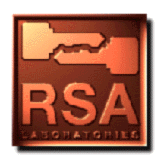

The Clipper chip proposal has aroused much controversy and has been the subject of much criticism. Unfortunately two distinct issues have become confused in the large volume of public comment and discussion.
First there is controversy about the whole idea of escrowed keys. Those in favor of escrowed keys see it as a way to provide secure communications for the public at large while allowing law-enforcement agencies to monitor the communications of suspected criminals. Those opposed to escrowed keys see it as an unnecessary and ineffective intrusion of the government into the private lives of citizens. They argue that escrowed keys infringe their rights of privacy and free speech. It will take a lot of time and much public discussion for society to reach a consensus on what role, if any, escrowed keys should have.
The second area of controversy concerns various objections to the specific Clipper proposal, that is, objections to this particular implementation of escrowed keys, as opposed to the idea of escrowed keys in general. Common objections include: the Skipjack algorithm is not public (see Question 80) and may not be secure; the key escrow agencies will be vulnerable to attack; there are not enough key escrow agencies; the keys on the Clipper chips are not generated in a sufficiently secure fashion; there will not be sufficient competition among implementors, resulting in expensive and slow chips; software implementations are not possible; and the key size is fixed and cannot be increased if necessary.
Micali [Mic93] has proposed an alternative system that also attempts to balance the privacy concerns of law-abiding citizens with the investigative concerns of law-enforcement agencies. Called fair public-key cryptography, it is similar in function and purpose to the Clipper chip proposal but users can choose their own keys, which they register with the escrow agencies. Also, the system does not require secure hardware, and can be implemented completely in software. Desmedt [Des95] has also developed a secure software-based key escrow system that could be a viable alternative. There have been numerous other proposals in the cryptographic community over the last few years; Denning and Branstad give a nice survey [DB95].
Contact RSA Laboratories:
100 Marine Parkway, Suite 500
Redwood City, CA
94065-1031
phone: 415-595-8782
fax: 415-595-1873
Website: http://www.rsa.com/rsalabs/
Website feedback or comments can be
sent to : WEBMAVEN@RSA.COM
Copyright ©1996, RSA Laboratories, Inc. All
Rights Reserved.
Last Updated: Friday, May 24, 1996